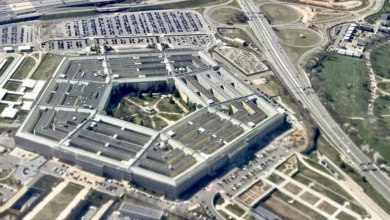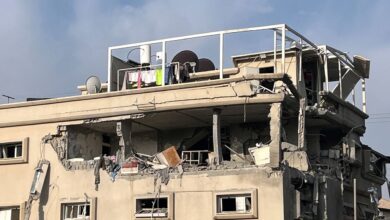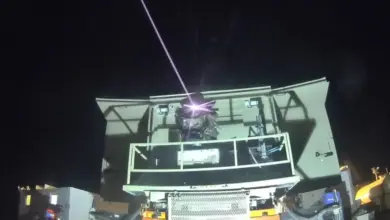The threat of a military strike on Iran is preventing the Islamic republic from taking the final steps toward developing a nuclear bomb, Israeli Defense Minister Ehud Barak said on Thursday.
"We are seeing with our own eyes the reason why Iran, which really wants to achieve a military nuclear capability, is not taking some of the steps defined by the IAEA as breaking the rules, why it is not breaking out," he told public radio, referring to the UN's International Atomic Energy Agency.
"One of the reasons is the fear of what will happen if, God forbid, the United States or maybe someone else acts against them," Barak said, referring to the threat of an air strike against Iran's nuclear facilities.
Israel sees an Iranian nuclear weapon as a threat to its existence, and believes Tehran may be on the cusp of "break out" capacity — the moment when it could quickly produce weapons-grade uranium.
With Iran shifting its core nuclear facilities into protected underground sites, Israel fears Tehran is moving into the so-called "immunity zone," and has warned a military strike may be the only way to prevent the Islamic republic from obtaining a nuclear weapons capability.
Although the Obama administration has made clear it would not hesitate "to use force" where necessary, it has also said it opposes an attack for now, and wants time to let a new round of sanctions take effect.
Last month, Iran agreed to revive talks with the P5+1 group of world leaders, comprising the five permanent UN Security Council members plus Germany, but the specter of a military confrontation still looms large.
Israel and Washington disagree over the imminence of the Iranian nuclear threat, and the only way to overcome this disagreement was to step up the sanctions imposed on Tehran and to ensure the upcoming talks achieved results, Barak said.
"There's a point of disagreement and the only way of getting over it and resolving it is by accelerating the sanctions, and by setting down a short timetable for the talks next month, to test if they mean to stop their nuclear program or not," he said.
So far, no date or venue for the talks has yet been announced. The last round of Iran-P5+1 talks collapsed in Istanbul in January 2011.
Israel and much of the West believe Iran's nuclear program is geared toward obtaining a weapon, but Tehran denies the charges, saying the program is for civil power generation and medical purposes only.




